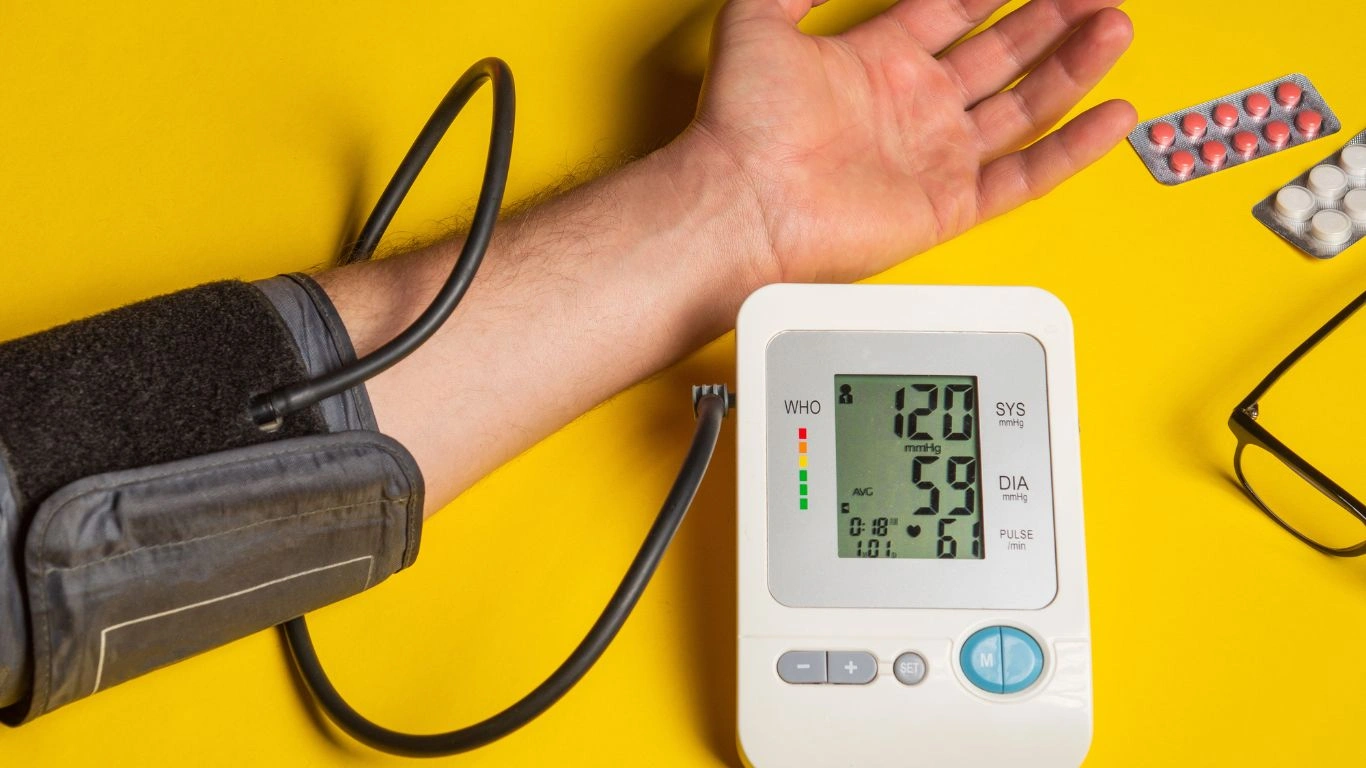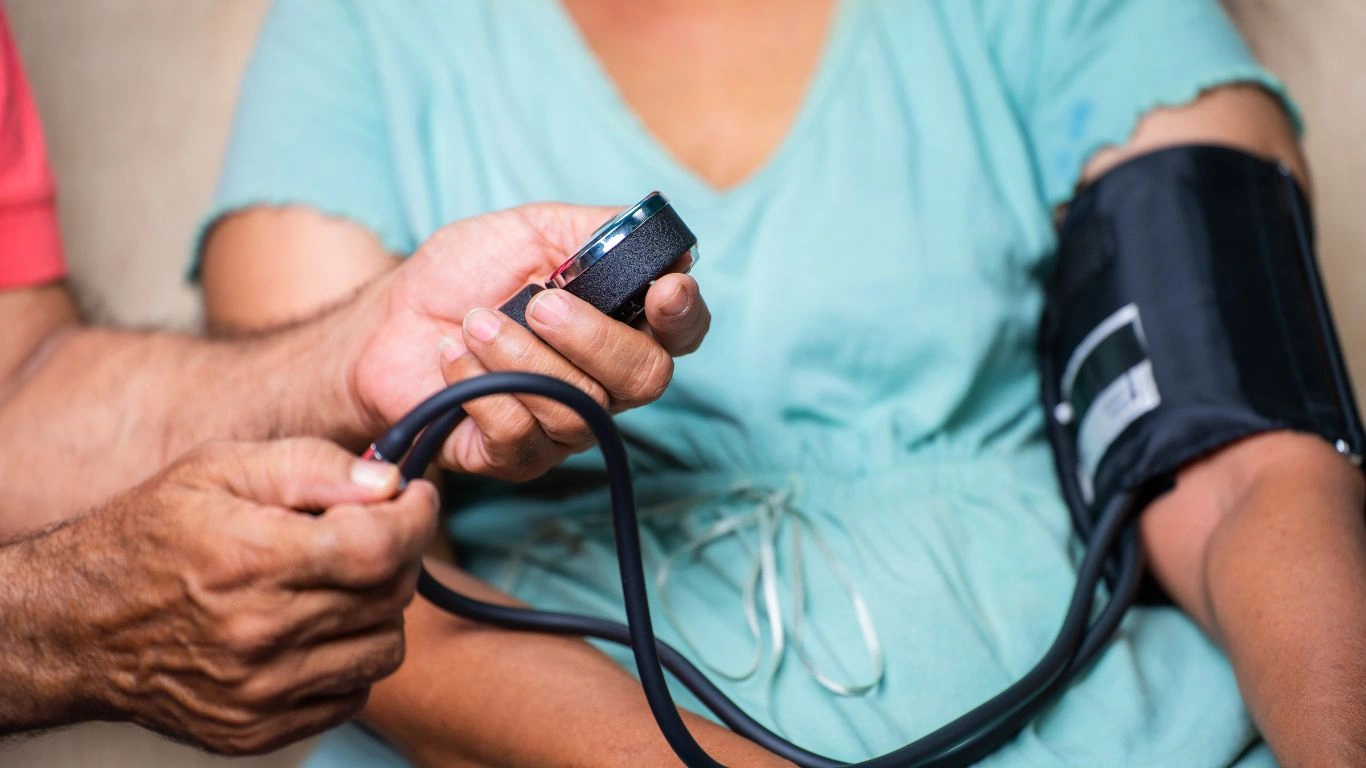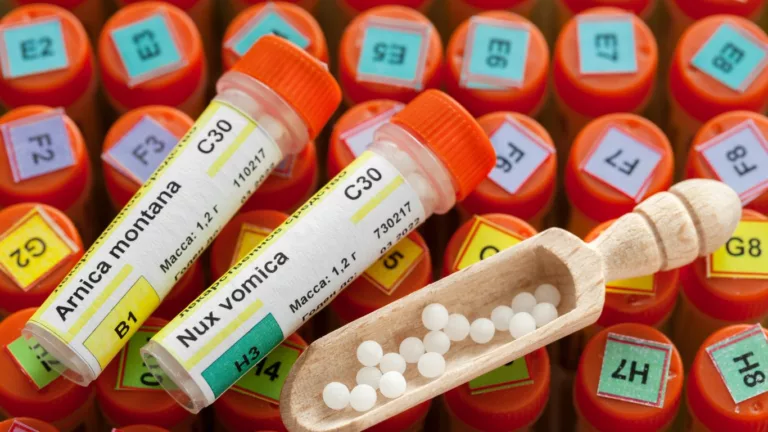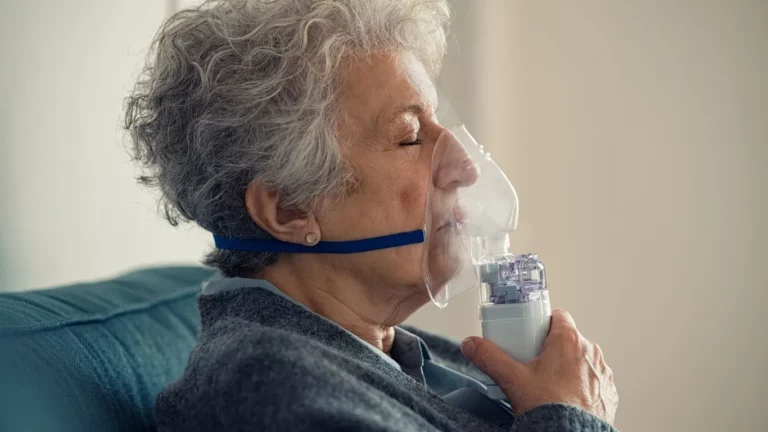How Emotions Affect Blood Pressure Long-Term: Manage Stress Now!
As an Internal Medicine Physician with a focus on hypertension management, I’ve seen firsthand how the body reacts to both physical and emotional stress. When it comes to managing blood pressure, most people think about factors like diet, exercise, and medications. But, one often overlooked aspect is the profound impact that emotions can have on blood pressure over time. In fact, emotional health plays a much bigger role in cardiovascular health than many realize, and understanding this connection is crucial for anyone looking to maintain long-term wellness. Today, let’s dive into how emotions affect blood pressure, especially in the long run.
How Stress and Anxiety Impact Blood Pressure

We’ve all experienced stress at some point, whether from work, relationships, or personal challenges. Stress is one of the most common emotional triggers that can affect blood pressure. In the short term, a stressful event causes a temporary rise in blood pressure. The body’s “fight or flight” response kicks in, and your heart rate increases, causing blood vessels to constrict. This is an evolutionary response designed to protect us in dangerous situations. But what happens when stress becomes a constant companion?
When stress becomes chronic, as it often does in our fast-paced world, it can lead to sustained high blood pressure. Over time, this constant state of heightened alertness takes a toll on the cardiovascular system. Blood vessels remain constricted, and the heart has to work harder than usual. If left unchecked, chronic stress can increase the risk of developing hypertension, heart disease, and even stroke.
Understanding the Cycle of Stress and Blood Pressure
One of the things I’ve observed in my practice is the vicious cycle of stress and high blood pressure. Stress triggers a rise in blood pressure, which can then make a person feel more anxious. This anxiety, in turn, triggers more stress, further increasing blood pressure. It’s a loop that can be difficult to break without intervention. The longer this cycle goes on, the greater the risk of long-term damage to the cardiovascular system.
Does Stress Alone Lead to Hypertension?
Not always, but it’s an important contributing factor. Chronic stress isn’t the sole cause of hypertension, but it certainly increases the likelihood. In many cases, it can make existing hypertension worse. For example, if you already have some genetic predisposition to high blood pressure, the added strain of long-term stress can push you into hypertensive territory.
Emotions Beyond Stress: Anger, Depression, and Their Effects

While stress is a well-known culprit, it’s not the only emotion that can affect blood pressure. Anger and frustration are other powerful emotions that can cause blood pressure spikes. When we get angry, our body releases stress hormones like adrenaline and cortisol, which can cause an increase in heart rate and blood pressure. These hormonal changes are meant to help us manage immediate threats, but frequent or intense bouts of anger can lead to long-term health issues.
In my experience, many people underestimate the effects of emotional repression. Suppressing anger or sadness without dealing with those emotions can lead to a hidden burden on the body, contributing to an increase in blood pressure. Over time, if emotions like anger aren’t managed properly, they can contribute to chronic hypertension and other cardiovascular issues.
The Link Between Depression and High Blood Pressure
Another emotion that plays a significant role in blood pressure is depression. It’s not uncommon for individuals dealing with depression to experience fluctuations in blood pressure. Interestingly, depression can cause both low and high blood pressure, depending on the individual. For some, depression leads to a decrease in physical activity, poor diet, and an increase in unhealthy habits like smoking or excessive alcohol consumption, which can all contribute to high blood pressure.
On the other hand, the emotional toll of depression can cause a spike in blood pressure during moments of intense sadness or despair. The stress hormones released during depressive episodes can have the same effect as those released during a stress response. Over time, the continuous emotional strain can take a toll on cardiovascular health.
The Role of Chronic Emotions in Long-Term Hypertension Risk
When it comes to hypertension, the danger isn’t just about the immediate effects of emotional stress. The real issue arises when these emotions are experienced regularly over the years, creating a long-term effect on the cardiovascular system. If these emotional states are left unaddressed, they can contribute to a steady increase in blood pressure, putting individuals at greater risk for heart disease, kidney disease, and other related conditions.
Building Emotional Resilience to Protect Blood Pressure

So, what can we do to manage the emotional stress that affects our blood pressure? The first step is acknowledging the impact that emotions have on our overall health. While it might seem overwhelming at times, managing emotional health can make a huge difference in controlling blood pressure over the long run. Here are some strategies that I recommend:
- Mindfulness and Meditation: Practicing mindfulness can help you become more aware of your emotions and better manage stress before it takes a toll on your body.
- Exercise: Regular physical activity is one of the best ways to reduce stress and anxiety. It also helps to lower blood pressure naturally.
- Cognitive Behavioral Therapy (CBT): CBT is a great tool for learning how to manage negative thoughts and emotional responses.
- Developing Healthy Social Connections: Building a strong support network can provide emotional relief during tough times, reducing the emotional load you carry.
Taking these steps may seem simple, but they can have a profound impact on both your emotional well-being and your blood pressure.
The Impact of Chronic Emotional States on Heart Health

As we dive deeper into how emotions affect blood pressure in the long-term, it’s important to understand that the true danger comes from chronic emotional states. We’re talking about emotions that are not just temporary, but persistent — stress, anger, sadness, and even constant worry. Over time, these emotions do more than just trigger momentary increases in blood pressure. They can gradually create a hostile environment within your body, leading to lasting damage.
Personally, I’ve witnessed this in my practice. A patient might come in with a “normal” blood pressure reading, but after years of unresolved stress and emotional turmoil, their blood pressure has steadily climbed into hypertensive territory. It’s not just the initial surge of emotions that are problematic. It’s the long-term exposure to emotional stress that becomes the silent culprit.
How Long-Term Stress Changes the Body
When we experience stress, the body releases a cascade of hormones, including adrenaline and cortisol. These hormones help us respond quickly to challenges. But when stress becomes chronic, the body’s continuous release of these hormones starts to cause problems. Over time, elevated cortisol levels can lead to higher blood sugar, increased inflammation, and a greater tendency to store fat around the abdomen. This combination can strain the heart and blood vessels, creating an environment conducive to high blood pressure.
What’s fascinating is how the body adapts to this chronic stress. We become accustomed to living with heightened cortisol levels, making it harder to even notice the toll on our cardiovascular health. That’s why stress management is not just about feeling “less stressed.” It’s about helping your body reset to a more balanced, less reactive state. I’ve seen patients who finally took control of their emotional health, implementing lifestyle changes like mindfulness or even just better sleep habits, and saw their blood pressure improve.
Anger: A Hidden Risk Factor

Anger is another emotion that can significantly impact blood pressure in the long run. While it’s normal to feel angry from time to time, holding onto that anger can be detrimental. Have you ever noticed how your blood pressure rises when you’re in the middle of an argument or feeling frustrated? That’s because anger activates your sympathetic nervous system, which causes your heart rate and blood pressure to spike. When anger becomes a recurring emotional state, the effects can be cumulative, contributing to chronic hypertension.
One of the most challenging parts of managing anger is recognizing how it affects us on a subconscious level. It’s not always about dramatic outbursts. Sometimes, it’s the subtle, simmering irritation that we carry around without even realizing it. Over the years, this ongoing state of frustration can wreak havoc on our cardiovascular health.
It’s not uncommon for patients who struggle with anger management to see improvements in their blood pressure once they begin addressing the underlying emotional triggers. Sometimes it’s about developing healthier outlets for anger, such as regular exercise or seeking professional counseling. In my experience, many people find that once they deal with the root cause of their anger, their blood pressure stabilizes, often without the need for additional medications.
The Effects of Emotional Eating and Its Link to Hypertension

Let’s talk about emotional eating for a moment. It’s something I see often in my patients. When you’re feeling stressed, anxious, or sad, the impulse to reach for comfort food is strong. Unfortunately, emotional eating can lead to weight gain, poor nutritional choices, and ultimately, an increase in blood pressure.
Eating unhealthy foods in response to emotions doesn’t just affect your waistline — it directly impacts your cardiovascular system. High-sodium foods, processed snacks, sugary drinks, and even alcohol can cause blood pressure to rise. When we use food to cope with our feelings, it becomes a vicious cycle. Poor food choices can worsen our emotional state, leading to more stress and, in turn, higher blood pressure.
Breaking the Cycle of Emotional Eating
One of the best ways to break the emotional eating cycle is to get to the root cause of the emotions driving that behavior. Therapy, support groups, or even mindfulness techniques can help you process and manage your emotions more effectively. By learning to cope with stress and negative feelings in healthier ways, you can begin to change the way you approach food.
In my clinical experience, patients who make a conscious effort to eat mindfully, especially during stressful times, tend to have better blood pressure control. It’s not about depriving yourself, but about choosing more nourishing foods that won’t exacerbate your emotional state or negatively affect your cardiovascular health.
The Importance of Social Support in Managing Emotional Health
Another aspect of emotional health that plays a significant role in blood pressure is our social support system. Loneliness and isolation are often overlooked as emotional stressors, but they can have a serious impact on blood pressure. People who feel socially disconnected or unsupported are more likely to experience chronic stress, anxiety, and depression, all of which can contribute to long-term hypertension.
Building strong, supportive relationships is crucial for emotional well-being. I’ve seen many patients improve their emotional health and, consequently, their blood pressure simply by becoming more engaged with friends, family, or community groups. Whether it’s through a supportive spouse, a close friend, or even a weekly social activity, staying connected can provide emotional relief that helps manage stress and keep blood pressure levels in check.
How to Cultivate Stronger Social Connections
One of the best ways to reduce emotional stress is to invest time and energy into building meaningful relationships. This doesn’t mean you need a large social circle — even a few close, supportive people can make all the difference. Try reaching out to a friend you haven’t spoken to in a while or getting involved in a community activity you enjoy. Social connections can buffer against the negative effects of stress, providing a much-needed emotional outlet.
Incorporating these emotional resilience strategies into your daily life is a powerful way to manage the long-term effects of emotions on blood pressure. While medications are important in managing hypertension, emotional health is just as critical in reducing the risks associated with high blood pressure. By learning to manage your emotions effectively, you can help protect your heart for years to come.
Managing Emotional Triggers for Better Blood Pressure Control

Now that we’ve covered how emotions impact blood pressure, let’s talk about what we can do to manage these emotional triggers in practical terms. In my years of practice as an internal medicine physician, I’ve found that recognizing and addressing emotional stress is just as important as managing physical factors like diet and exercise. Here’s where the real work begins—learning how to navigate your emotional world to keep your blood pressure in check.
Identifying Emotional Triggers
The first step in managing the impact of emotions on your blood pressure is identifying your emotional triggers. For many people, stress is the most obvious factor, but there are often deeper emotional undercurrents at play—unresolved anger, chronic worry, or even fear. The trick is to start noticing when your emotions begin to escalate. Once you can identify when your stress levels start to climb, you can take steps to manage those feelings before they snowball into a larger problem.
In my experience, journaling is a great way to uncover emotional triggers. I often suggest to patients that they keep a daily log of their emotional experiences, including when their blood pressure spikes. Over time, you’ll start to notice patterns—maybe your blood pressure is consistently higher during stressful meetings or after arguments at home. This self-awareness can be a powerful tool for taking control of your emotional health.
Dealing with Emotional Overload: Simple Stress Management Techniques
Once you’ve identified your emotional triggers, the next step is learning how to respond to them in a way that protects your blood pressure. Stress management is crucial in this process. Fortunately, there are several techniques you can use to keep emotional overload in check.
- Breathing Exercises: One of the quickest ways to lower your stress is through deep breathing. Inhale slowly for four counts, hold for four counts, and exhale for four counts. This simple technique activates your parasympathetic nervous system, which helps counteract the fight-or-flight response and lowers blood pressure.
- Progressive Muscle Relaxation: This involves tensing and then relaxing different muscle groups in the body. It’s a great way to release physical tension that can accompany emotional stress.
- Mindfulness Meditation: Mindfulness helps you stay present and reduce rumination over stressful events. By practicing mindfulness, you can prevent your emotions from spiraling out of control.
- Physical Exercise: Exercise isn’t just good for your body—it’s an excellent way to clear your mind. Even a brisk 20-minute walk can do wonders for reducing stress and lowering blood pressure.
In my personal experience, patients who make stress reduction a regular part of their routine often see substantial improvements in both their emotional well-being and blood pressure. It’s not a one-time fix—it’s about consistently incorporating these habits into your daily life.
When to Seek Professional Help
While managing emotional stress on your own is helpful, there are times when you may need professional support. If your emotional health is significantly affecting your daily life or if you’re having trouble managing persistent anxiety, depression, or anger, it’s important to seek help from a mental health professional. A therapist or counselor can help you explore the root causes of your emotional struggles and develop personalized strategies for managing them effectively.
Sometimes, individuals may require additional support in the form of medication or counseling to manage emotions effectively. I’ve seen firsthand how combining medication with lifestyle changes, like exercise and therapy, can have a profound impact on both mental health and blood pressure control. If you’re feeling overwhelmed by emotional stress, don’t hesitate to reach out for help—it’s a sign of strength, not weakness.
Cognitive Behavioral Therapy (CBT) and Blood Pressure
Cognitive Behavioral Therapy (CBT) is a widely used form of therapy that focuses on changing negative thought patterns and behaviors. For people struggling with chronic stress, anxiety, or anger, CBT can be incredibly effective. This therapy teaches individuals how to recognize and reframe distorted thinking, which can, in turn, reduce emotional stress and improve overall well-being.
CBT is also great for addressing the underlying thought patterns that contribute to unhealthy emotional responses. For example, if you tend to catastrophize situations (thinking the worst possible outcome will happen), CBT can help you develop healthier, more realistic ways of thinking. By reducing stress and emotional reactivity, CBT can help lower your blood pressure in the long run.
The Role of a Holistic Approach in Long-Term Blood Pressure Management

When it comes to managing blood pressure, a holistic approach is often the most effective. This means addressing not just the physical factors like diet and exercise, but also the emotional and mental factors that contribute to your overall health. As an internal medicine physician, I’ve found that patients who adopt a more holistic approach to their health tend to have better outcomes in managing high blood pressure.
A holistic approach may include a combination of regular physical activity, stress management techniques, proper sleep, a balanced diet, and addressing emotional health. It’s all about treating the person as a whole rather than focusing on individual aspects of health. This approach helps create a stable foundation for maintaining healthy blood pressure levels over the long term.
In my practice, I often emphasize that blood pressure management is not just about “getting it under control” in the short term. It’s about creating lasting habits that promote overall health and well-being. This may involve working on emotional resilience, finding healthier ways to cope with stress, and making lifestyle changes that are sustainable in the long run.
References and Further Reading
For those interested in diving deeper into the relationship between emotions and blood pressure, there are numerous resources available:
- Health.com – A great resource for articles on heart health and stress management.
- National Institutes of Health – Learn more about the science behind blood pressure and emotional health.
- Mayo Clinic – Practical advice for managing stress and its impact on blood pressure.
- Psychology Today – Articles on emotional health and its connection to physical health.
Disclaimer
The information provided in this article is for educational purposes only and is not intended as medical advice. Always consult with your healthcare provider for advice tailored to your specific situation. Emotional and physical health are deeply interconnected, and managing both aspects is essential for overall well-being. If you’re concerned about your blood pressure or emotional health, please seek guidance from a healthcare professional.

Dr. Gwenna Aazee is a board-certified Internal Medicine Physician with a special focus on hypertension management, chronic disease prevention, and patient education. With years of experience in both clinical practice and medical writing, she’s passionate about turning evidence-based medicine into accessible, actionable advice. Through her work at Healthusias.com, Dr. Aazee empowers readers to take charge of their health with confidence and clarity. Off the clock, she enjoys deep dives into nutrition research, long walks with her rescue pup, and simplifying medical jargon one article at a time.







